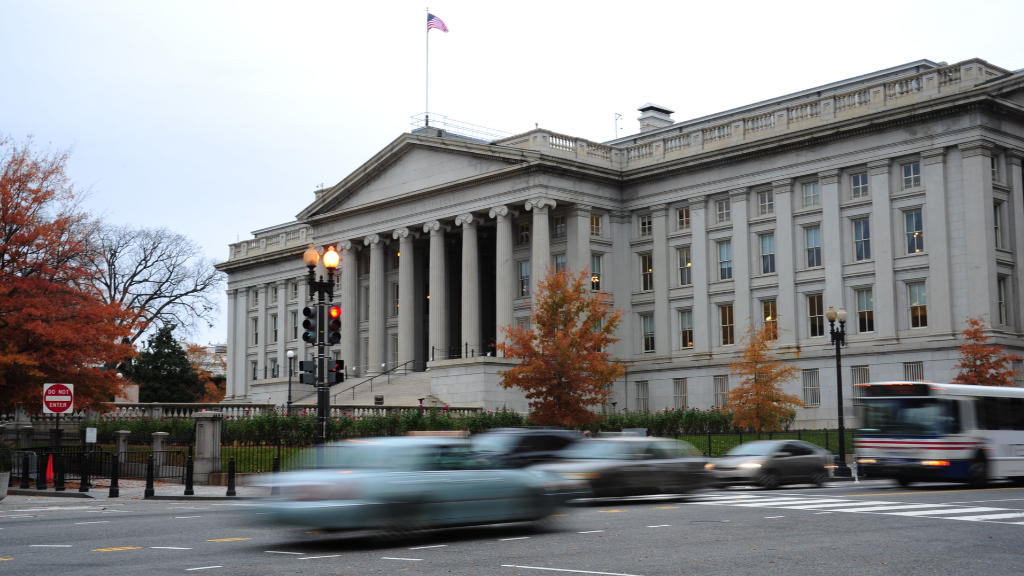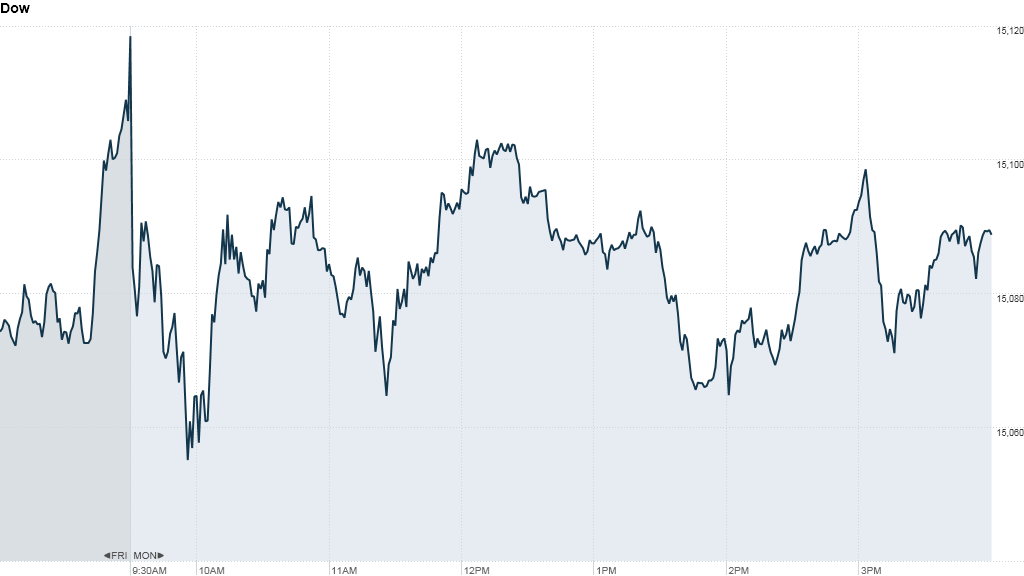The jokes about QE Infinity may come to an end soon.
The Federal Reserve and its bond buying program were a hot topic Monday, following a Wall Street Journal report over the weekend that said central bank officials are considering an exit strategy for the massive stimulus measures that have been fueling the economy since late 2008. Stocks finished mixed Monday.
Currently, the Fed buys $85 billion a month of mortgage-backed securities and Treasuries. And just last month, the central bank said it stands ready to either "increase or reduce the pace" of those purchases in response to economic activity.
"The article does not say that the Fed will start tapering the pace of bond purchases immediately, but it provides a window into sentiment at the central bank," said Zach Pandl, senior interest rate strategist at Columbia Management. "Faced with conflicting information on the economy, Fed officials have decided to see the glass as half full. They are thinking about the exit, not about how to do more."
Click here for more on stocks, bonds, commodities and currencies
The fear that the Fed may begin to unwind its loose monetary policies sooner rather than later put pressure on U.S. Treasuries, with the 10-year yield spiking to a nearly two-month high of almost 1.96% before settling around 1.92%. Just a month ago, yields were hovering around 1.6%. Treasury prices and yields move in opposite directions.

Meanwhile, the Dow Jones industrial average slipped about 0.2%, while the S&P 500 and Nasdaq finished barely higher. But the gain in the S&P 500 was enough to push it to another record close.
The Fed's policies have been widely given credit for boosting stocks over the past few years.
As investors debate the Fed's next moves, here are five more things investors were watching:
1. Stocks remain near record highs as valuations creep up. Although the Dow fell Monday, it finished last week at a record high. The Nasdaq closed at its highest level since November 2000.
With stocks up so sharply this year, valuations have also crept higher. At its closing high last week, the S&P 500 traded at more than 16 times 2012 earnings, the highest P/E ratio in three years according to Eddy Elfenbein of the blog Crossing Wall Street.
However, stocks are still trading at less than 15 times 2013 earnings estimates.
2. Retail sales unexpectedly rise: Retail sales edged higher in April, as strong car sales and spending on building supplies helped make up for weakness in other sectors. Economists had expected sales to decline.
Mark Luschini, chief investment strategist for Janney Montgomery Scott, said retail spending "continues to show remarkable resilience," especially after the expiration of the payroll tax holiday earlier this year.
Related: Individual investors rush into Apple
3. Earnings continue to roll in: Companies will continue to open their books this week, with Macy's (M), Wal-Mart (WMT) and J.C. Penney (JCP), as well as networking firm Cisco Systems (CSCO) on deck.
Shares of Tesla Motor (TSLA)extended last week's rally. The electric car maker reported its first quarterly profit last week, and a separate report said Tesla sales outperformed German luxury brands.
SolarCity (SCTY), whose chairman is Tesla CEO Elon Musk, reported a quarterly loss after the closing bell Monday. Shares fell after hours but they had surged to an all-time high in regular trading Monday. Shares of other solar firms were energized by SolarCity's advance earlier in the day. Shares of First Solar (FSLR), SunPower Corp. (SPWR), LDK Solar (LDK) and ReneSola (SOL) also rose.
Most major companies have announced their first-quarter earnings and results have been pretty good. According to S&P Capital IQ, of the 453 S&P 500 companies that have reported first quarter results, 301 have beat analysts' estimates, 115 have missed, and 37 have met.
Related: Fear & Greed Index sliding into extreme greed
4. Disappointing data from China: Asian markets ended mixed after a report showed China's industrial production expanded in April, but failed to meet expectations. The Shanghai Composite declined 0.2% and the Hang Seng dropped 1.5%.
But the weakening yen pushed the Nikkei up 1.2%. Tokyo's benchmark index has rallied by 42% since the start of the year based on optimism about the country's aggressive monetary policy.
5. Muddy Waters reportedly shorting Standard Chartered: Standard Chartered (SCBFF) fell into the spotlight after famed short-seller Carson Block of Muddy Waters Research was reported to have announced he is betting against the bank, saying its assets were deteriorating.
European markets finished the day mixed, losing momentum after a strong performance last week.



